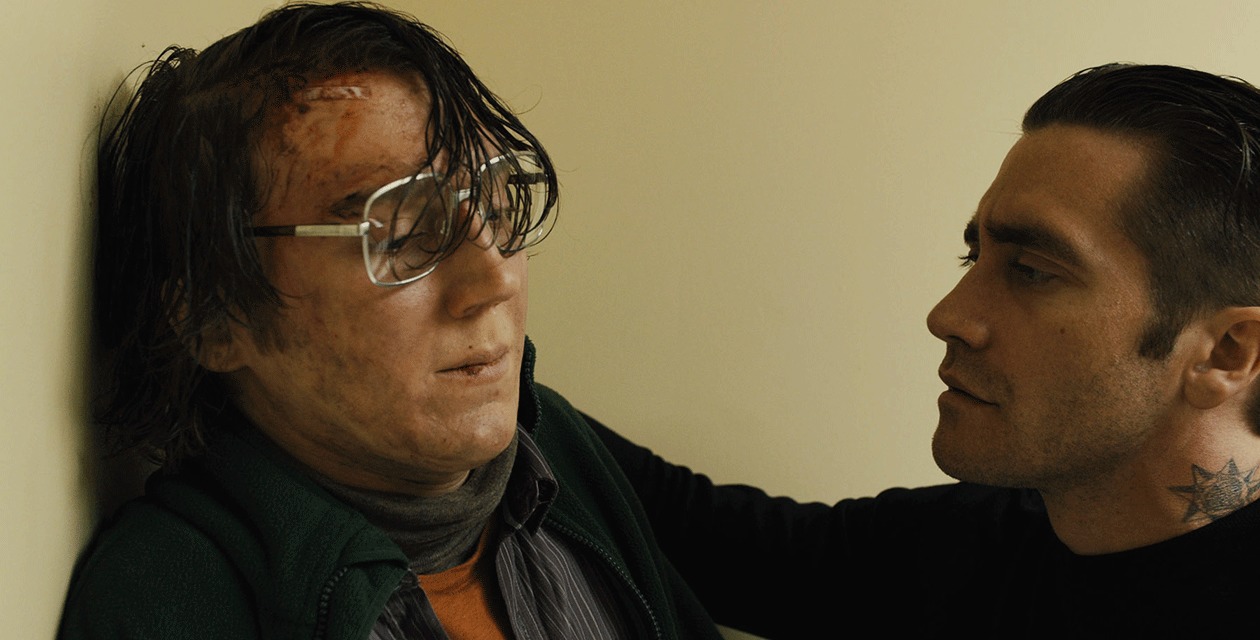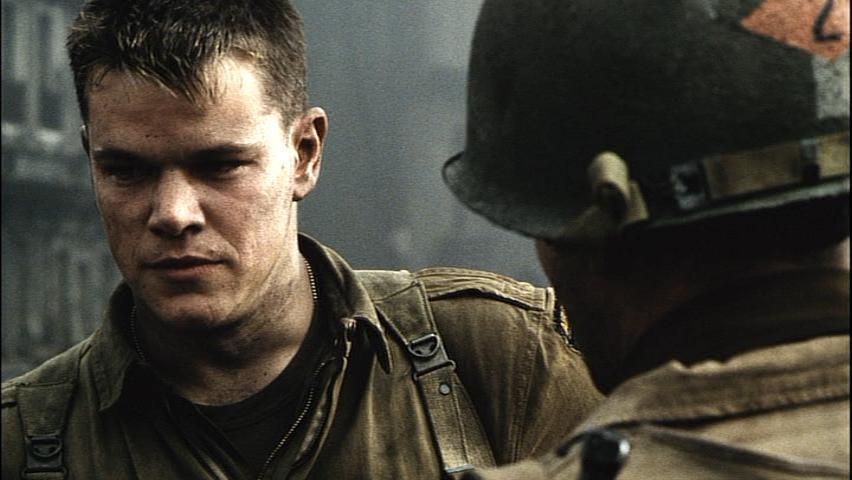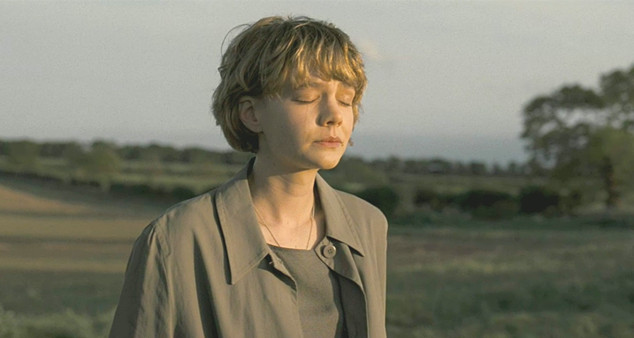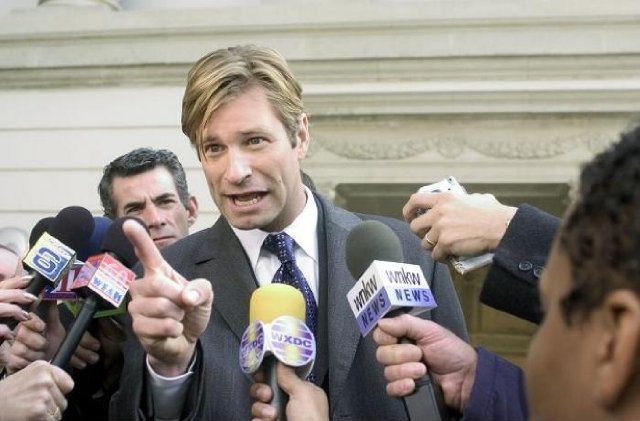6. Prisoners

When two young girls go missing in Pennsylvania, a suspect is arrested only to later be released without charge by the police. One of the girl’s fathers decides to take matters into his own hands and kidnaps the suspect in order to force a confession from him.
The law is one thing that exists that deals in absolutes. Stealing is always wrong, murder is always wrong. There may be different degrees of punishment, but the action is always wrong.
As citizens we are asked to trust in the law, and the procedure of law enforcement. But what happens when the law does not produce the results that we desire? Is there ever a situation where it is okay to take the law into your own hands? This is the central moral dilemma of Prisoners – do the ends justify the means? Does the seriousness of the crime make a difference on the actions of those affected by it? How far would you go to save a loved one?
What makes the moral dilemma of Prisoners even more complex is that it deals with a crime that is abhorrent to most people. And also, that it is about the intimate pain that you experience when your family and loved ones are affected by something. Most people would say that there is nothing they would not do for their family, or to protect their family.
In this noble sentiment lies the crux of this moral dilemma. When there is no means by which you would not take to protect your loved ones, then does that mean that you are above the law? As you watch Prisoners, you cannot help but mull over this dilemma constantly, asking yourself what you would do. Prisoners plays with the audience’s conscience throughout. The ending of Prisoners brings with it, not a tied-up conclusion but yet more questions for the audience where they must make up their own mind.
7. Saving Private Ryan

Following the Normandy landings, Captain John Miller (played by Tom Hanks) leads his men on a dangerous mission behind enemy lines to find paratrooper Private First-Class Ryan (Matt Damon) who is the last surviving brother of four servicemen.
When a group of soldiers serving under Captain John Miller are tasked with going behind enemy lines to undertake the rescue of Private Ryan, they are not best impressed. After all, why should they risk their own safety to help a man they do not know? And so, begins the moral dilemma which is at the core of Saving Private Ryan – should a group of men risk their lives for just one man? Is every life worth saving? And if so, at what cost? The soldiers are not sure, and this hits home for them even more when not all their number complete the mission.
Saving Private Ryan raises many questions, not only on the morality of warfare and those who give their lives in service but also on the morality of the cost of life and at what lengths we should go to, to preserve it.
Saving Private Ryan takes a situation and setting that may not be familiar to all of us, yet its moral dilemmas are inherently relatable. The preservation of human life is something that all of us would want to commit to, yet would we put ourselves and others in danger in pursuit of it? Saving Private Ryan allows us to ask these questions of ourselves. When the film concludes, the audience will undoubtedly ask – was it worth it?
8. Never Let Me Go

At an English countryside boarding school, friends Tommy (Andrew Garfield), Kathy (Carey Mulligan) and Ruth (Keira Knightley), grow up together in an idyllic setting. They are faced with horror, betrayal and jealousy when the true nature of their existence is revealed.
In a dystopian version of our world, the three central characters of Never Let Me Go discover that they are clones and that their only purpose and existence is to become organ donors. They will one day undergo a number of donations and then ‘complete’ their life span. At first the characters do not know the true meaning of their existence, and live a normal childhood.
When they find out about their fate, they must learn to accept that for them there is no alternative. Since the medical discovery of using clones and organ donation, there has been no cancer and people’s lifespans have increased. With such amazing advancements being made, can it be argued that the clones exist for the greater good? But these clones have feelings, memories and live like every other human being – they eat, sleep and fall in love.
In the film, there is a moment when it is asked if the clones have souls. Is a soul what makes us human and gives us certain rights? It seems overwhelmingly cruel to ‘breed’ human beings just to harvest their organs, but in the face of disease and in order to save millions – is it justified?
Never Let Me Go looks at the morals and ethics of medical advancements and treatments. But it also looks at the morals of what it means to be human, and if there can ever be a way to weigh one life against another. This haunting film doesn’t tell the audience what to think, rather it presents its grim facts as the truth of life. The resulting feeling is that of thinking deeply about how we treat one another, and how others may live an existence of pain and suffering.
9. Stranger Than Fiction

IRS agent Harold Crick (Will Ferrell) lives a mundane existence. One day he begins to hear a mysterious voice narrating his life. He discovers that he is the main character in a novel currently being written, and must track down the novel’s eccentric author before she conjures up a way to finish him off.
The morality of art, and what we do in the name of art is addressed in Stranger Than Fiction. Harold Crick is the centre of a novel which has the potential to be a great novel if he is killed off at the end of it. A beautiful and important piece of work which will be its novelist’s greatest work. Yet that is only if Harold dies. Should Harold die in the name of great art? That is what author Karen Eiffel (Emma Thompson) is struggling with in Stranger Than Fiction. And similarly, Harold struggles with accepting his fate.
Not only does Stranger Than Fiction ask questions about the morality of the importance of art, it also raises an interesting concept – would we treat our characters differently if they were real? Would literature still exist? And outside of that, it raises issues of our influence on others. If you knew you were negatively affecting someone’s life to their detriment but to your benefit – would you stop? Would you behave differently? Stranger Than Fiction plays like a modern-day fable, and is a unique take on a moral dilemma which is incredibly relevant in an age where art is an ever changing medium.
10. Thank You for Smoking

Nick Naylor (Aaron Eckhart) is chief spokesperson for Big Tobacco, and spends his time lobbying on behalf of cigarettes and using heavy spin tactics. He must also remain a good role model for his young son. But things become even more complicated when Nick is tasked with countering an anti-smoking campaign.
We often face moral dilemmas in our personal lives, but the main moral dilemma of Thank you for Smoking comes from central character Nick Naylor’s work life. The moral dilemmas that you face in your professional life can sometimes be even more tricky to resolve because of the threat of losing your job and livelihood. For Nick, his job requires a certain amount of moral flexibility.
Lobbying for cigarettes means that Nick moulds the truth to suit his business, and that can result in morally dubious behaviour. Nick is good at his job, possibly too good, and when his son starts to take more of an interest in Nick’s work, Nick must decide how best to show his son what he does. And so, for the audience, this raises questions on our behaviour and how we change it to suit our needs.
Nick knows that smoking is bad for you, but he lobbies for it for a living. Is it wrong to promote something that you know is bad in order to make a living? Is it wrong to smoke or is it a choice we are all entitled to? Do we have a duty to protect our children with lies or truths? Thank you for Smoking doesn’t make a moral stand either way, but lets the audience see both sides of the morally dubious argument in order to allow us to make up our own minds.
Author Bio: Cara McWilliam-Richardson is a writer with a passion for films and filmmaking. She has written several screenplays, and is currently working on her first novel. Her favourite genre to write is fantasy and science fiction.